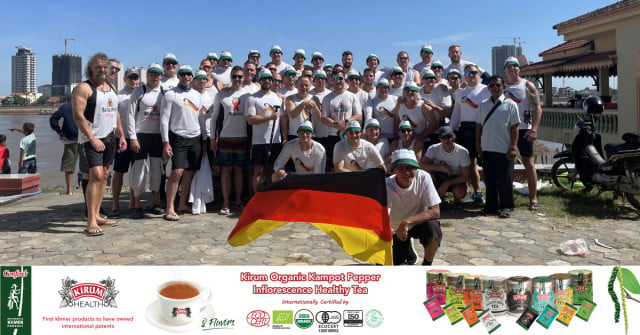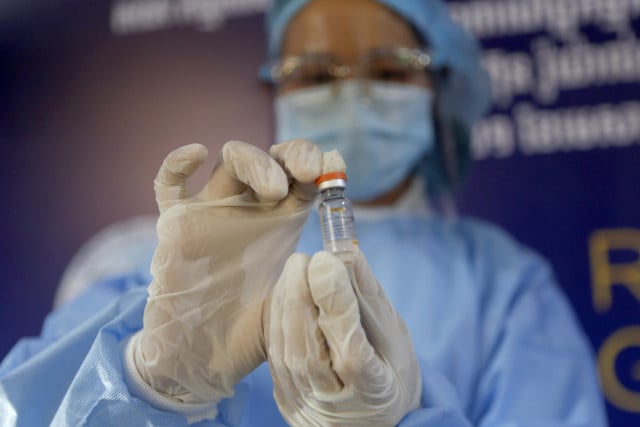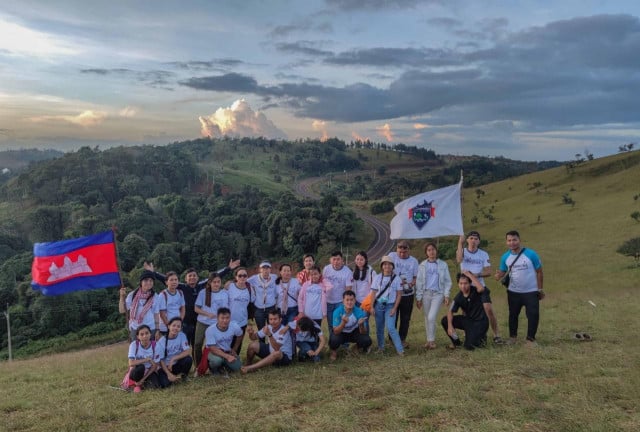German Crew Experience Unique Boat Race Experience

- By Meng Seavmey
- December 1, 2023 9:55 AM
PHNOM PENH – Racing in a dragon boat is a unique experience and the Water Festival will always be a great place, German crew members say.
The oarsmen from the WannSea Dragons boat racing team based in Berlin, Germany, came to Cambodia for the boat races from Nov. 26 to Nov. 28 in Phnom Penh.
Kiebitz, a member of the “Moen Keo Senchey Baramey Lvea Sor” crew, said it was the first time that the team had raced in a dragon boat, representing a Cambodian pagoda in Lvea Aem district, Kandal province.
He was impressed by the unique size of Cambodian dragon boats, which can carry about 75 people, and wanted to test the crew’s capability against Cambodians.
Mam Bunsong, living in Germany, is the translator for the crew and is Kiebitz's uncle. He said they first visited the boat race 18 years ago and got interested.
Bunsong contacted Yoem Thorn, the director of the boat committee in Lvea Aem district, to use an unused boat at the Lvea Sor pagoda, Kandal province.
Thorn said in 2019, the crew came to Cambodia and saw that there were two types of boat: dragon boat (long) and international boat. Therefore, they wanted to join in the following year’s competition.
The three-year cancellation due to COVID-19 outbreak and ASEAN's Summit stopped the process.
"The German team provided us with a financial assistance for participating in the race. They have their own skills and training in Germany," he said.
"Personally, I feel excited and happy that foreigners are interested in participating in this traditional competition in Cambodia, especially choosing to race for our Kandal province," he added.
Difficulties and lesson learned
Kiebitz said there were a few challenges for racing. One was verbal communication among the crew.
“It was so difficult to get the crew’s attention during the race because the boat was so long that I could only see the person in front of me, and the microphone was not working,” he said.
The crew also was not familiar with the time arrangements in the competition. Kiebitz said they waited for more than two hours before setting off for the race, which was hard for them because their bodies were not used to it.
However, the crew members learned that they had to watch the people in front of them to sync their rowing movement because shouting and the microphone would not work.
Kiebitz said the crew had no specific plan to come again next year but would consider it later as it would not be their last time in the region.















